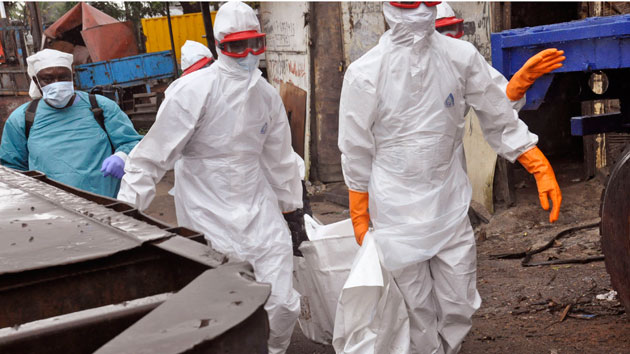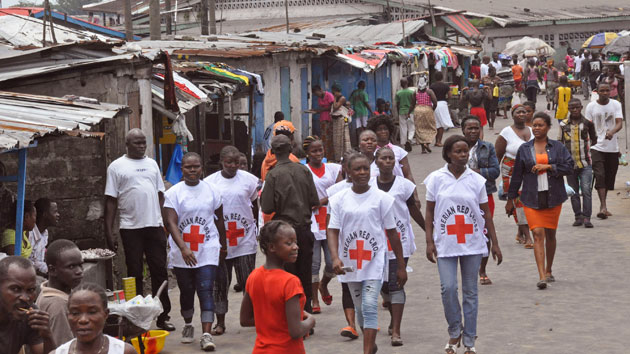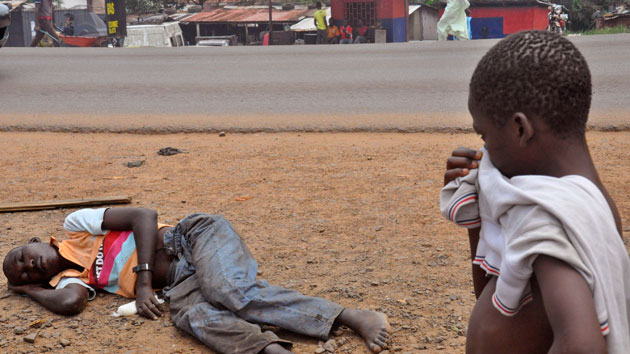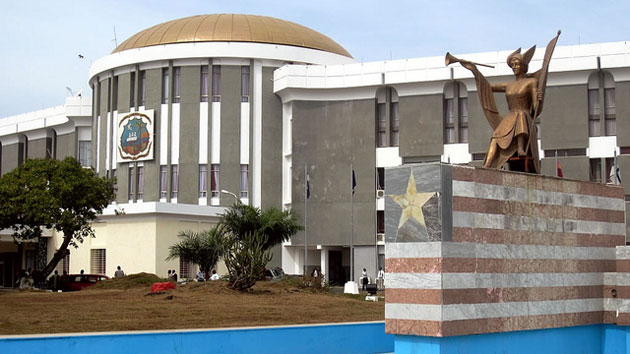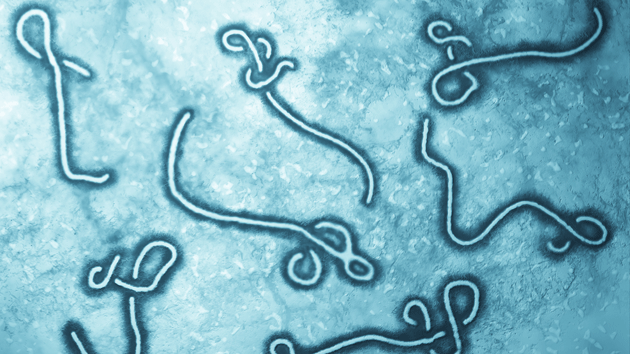
Update 7, October 15, 8:20 a.m. EDT: A second hospital worker who treated the Dallas Ebola patient has tested positive for the disease.
Update 6, October 12, 2:50 p.m. EDT: A hospital worker who treated the Dallas Ebola patient has contracted the disease.
Update 5, October 8, 11:25 a.m. EDT: According to Texas Health Services, the Dallas Ebola patient, Thomas Eric Duncan, has died.
Update 4, October 3, 12:57 p.m. EDT: Howard University Hospital in Washington, DC, has a patient in isolation with symptoms “that could be associated with Ebola,” a hospital spokeswoman said in a statement. The patient, who is in stable condition, recently returned from Nigeria, the spokeswoman said.
Update 3, October 1, 6:50 p.m. EDT: Liberian officials identified the first person diagnosed with the Ebola virus in the United States as Thomas Duncan, a Monrovia resident in his mid-forties. Duncan had tried to help a woman sick with the virus find treatment two weeks ago, according to the New York Times. Unable to find a place in a local hospital, the woman’s family took her back to her home, where she died a few hours later.
The story follows a pattern which the World Health Organization had warned of in a September 8 statement, which described how cars, sometimes packed with entire families, could cross Liberian cities in search of a place at a local hospital, only to return home for lack of space. “When patients are turned away at Ebola treatment centers, they have no choice but to return to their communities and homes, where they inevitably infect others, perpetuating constantly higher flare-ups in the number of cases,” the organization said in the statement.
Update 2, October 1, 2:20 p.m. EDT: With the first Ebola patient to be diagnosed in the United States isolated in a Dallas hospital and in serious condition, officials are closely monitoring the people he came into contact with—including several children. The unidentified patient, who arrived in the United States from Liberia on September 20, fell ill and went to the hospital on September 26, but was released with a prescription for antibiotics. On Wednesday, the AP reported that the patient told the hospital he had come from Liberia before his release.
This is not the first time a commercial airliner has become a carrier for the virus. On July 20, a Liberian-American arrived in Nigeria’s largest city, Lagos, and infected several people. The disease spread to another city, Port Harcourt, via one of the physicians involved in that patient’s treatment. As of September 29, the CDC and World Health Organization reported 19 confirmed cases of Ebola in Nigeria, but said the virus was contained there.
Update, September 30, 6:15 p.m. EDT: According to officials from the Centers for Disease Control, the patient, a male, arrived in the United States from Liberia on September 20. He planned to visit with family members in Texas. He initially sought treatment at a hospital on September 26 but was sent home, and then was readmitted on September 28. Texas public health officials believe that the patient had contact with “a handful” of people while he was infectious, including family members. The officials are currently in the process of tracing those contacts. CDC officials do not believe that anyone on the flight with him has any risk of contracting Ebola.
During a press conference, CDC officials reiterated that Ebola is not transmitted through the air, nor is it possible to catch it from someone who has been exposed but is not yet displaying symptoms.
“Ebola is a scary disease,” said CDC’s Dr. Thomas Frieden. “At the same time, we are stopping it in its tracks in this country.”
***
The Centers for Disease Control and Prevention has confirmed a case of Ebola in Dallas. While other patients have been flown back to the United States for treatment, this is the first time that a patient has been diagnosed stateside.
The patient is being kept in “strict isolation” at Texas Health Presbyterian Hospital. While hospital officials are not currently discussing which countries the patient has visited, no doubt US officials will be looking very closely at where he’s traveled in the recent past, especially within the United States. The CDC will be holding a press conference on this at 5:30 p.m. Eastern. You can see it live here.
Ebola has already infected more than 6,000 people—and killed more than 3,000—in West Africa. Quick action prevented the disease from spreading in Senegal and Nigeria, but the disease continues to wreak havoc in Liberia, Sierra Leone, and Guinea.
